2024 First National Training Course on Nasointestinal Catheterization and Maintenance Standards for Adults Held in Beijing
From September 21 to 25, 2024, the first National Adult Naso-intestinal Tube Placement and Maintenance Standard Training Course sponsored by the Chinese Geriatric Society and undertaken by the Gastroenterology Department of the Second Medical Center of the PLA General Hospital was successfully held in Beijing. With the theme of "Fine profession, excellent Quality, smart future", the training course attracted more than 100 nursing experts from all over the country to participate in this event and jointly discuss the cutting-edge technology and practical experience in this field.
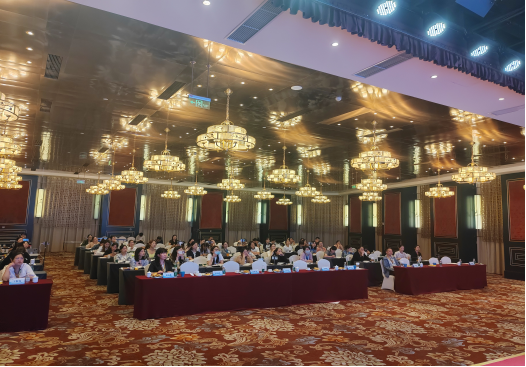
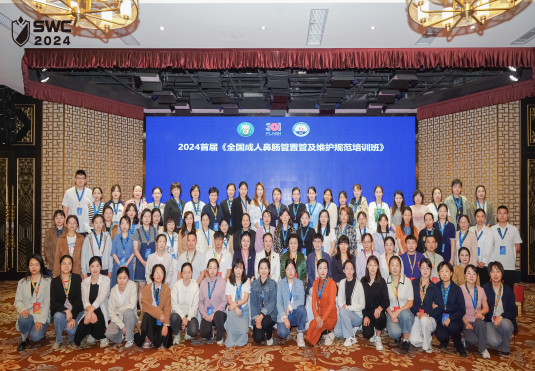
The trainees enrolled in this training course are from 28 hospitals in 19 provinces and cities across the country, all of whom are clinical experts working in the field of enteral nutrition for the elderly or critical patients for a long time. The backbone with naso-intestinal tube insertion experience and specialized nurses with professional training account for more than two-thirds, and the head nurses in management positions and the backbone of scientific research account for more than half. The solid and profound professional skills of the students have laid the foundation for the high efficiency and high level of the training course.
At the opening ceremony, Cao Feng, Vice president of the Chinese Geriatric Society, Ma Hui, director of the Nursing Department of the PLA General Hospital, Deng Dongfei, Deputy Secretary-General of the Chinese Geriatric Society, Yang Lifei, director of the Standardization Working Committee of the Chinese Geriatric Society, Cao Zuohua, vice president of the Chinese Nursing magazine, Chen Hongxin, Party secretary of 35 Aerospace Science and Engineering Hospitals, and Director Wang Jianrong, former director of the Nursing Department of the PLA General Hospital, attended the meeting. Vice President Cao Feng and Director Ma Hui delivered a speech at the opening ceremony, expressing their warm welcome to the nursing colleagues attending the meeting, and hoping to promote the leading nursing technology through this training to improve the quality of nursing services for the elderly in digestive nutrition.
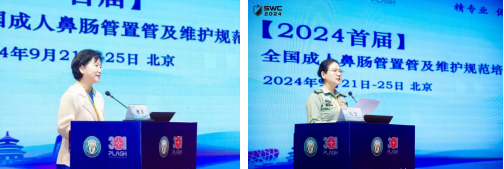
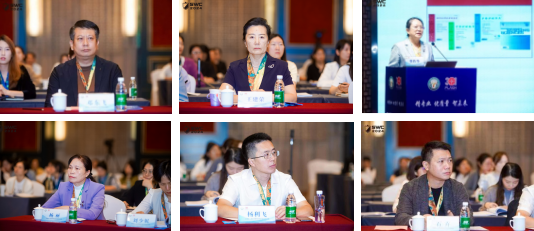
The theoretical course of this training course is divided into four modules. In the keynote report module, President Fan Li of the Chinese Geriatric Society visited the scene to give a special lecture "The Challenge of Geriatric medicine Development to nursing work", elaborated on the current situation of aging in China, and sent participants to contribute wisdom and strength to achieve the goal of healthy aging. PI Hongying, President of the Medical Care Branch, presided over and served as a special guest reviewer. In the module of enteral nutrition theory and nasoenteric tube standard interpretation, Ma Yanlan, director nurse of PLA General Hospital, and Shi Haiyan, deputy Director nurse of PLA General Hospital, as the lead publisher of the standard, carried out standard interpretation on the "Adult Nasoenteric tube retention and Maintenance Code" and "electromagnetic navigation Catheterization Code of Nasoenteric Tube" respectively. Among them, "Electromagnetic Navigation catheterization Code of Nasoenteric Tube" was rated as the high-quality group standard of Beijing. Highlighting the authority and practicability of the standard, this lecture enables the standard to be further promoted across the country. Yang Lifei, director of the Standardization Working Committee of the Chinese Geriatric Society, introduced the Basis of Group Standards and the Compilation of Standards, and Professor Feng Xiaoyan of Capital Medical University systematically explained the Physiological characteristics of the Digestive System. Establishing technical and clinical application modules in enteral nutrition pathway Xiang Chenglin, head nurse of Union Hospital Affiliated to Tongji Medical College of Huazhong University of Science and Technology, Xiao Jianguo, deputy chief physician of the First Medical Center of the People's Liberation Army General Hospital, Deng Ying, deputy chief nurse of Beijing Hospital, and Ye Xianghong, chief nurse of the Eastern Theater General Hospital, respectively spoke about electromagnetic navigation nasointestinal tube insertion technology, ultrasonic assisted nasointestinal tube insertion technology, three-cavity feeding tube blind insertion technology, and liquid sac jejunal catheter insertion technology Li Jun, director nurse of Xiangya Hospital of Central South University, and Mi Yuanyuan, director of Union Hospital Affiliated to Tongji Medical College of Huazhong University of Science and Technology, are in charge of nurses' Lean Nutrition Management and Outpatient Development and Evidence-based Research on Critical Nutrition Nursing, which provide students with multi-dimensional thinking and inspiration in clinical application and scientific research. In the module of catheter tip location determination and complication management, Fan Miao, chief physician of the First Affiliated Hospital of Sun Yat-sen University and the former deputy chief physician of Ruijin Hospital affiliated to Shanghai Jiao Tong University, had an in-depth discussion with the students on catheter location judgment, X-ray interpretation and pipt-related complications. Professor Fan Miao made an image interpretation of the method of catheter location determination concerned by the students. Interaction is frequent.
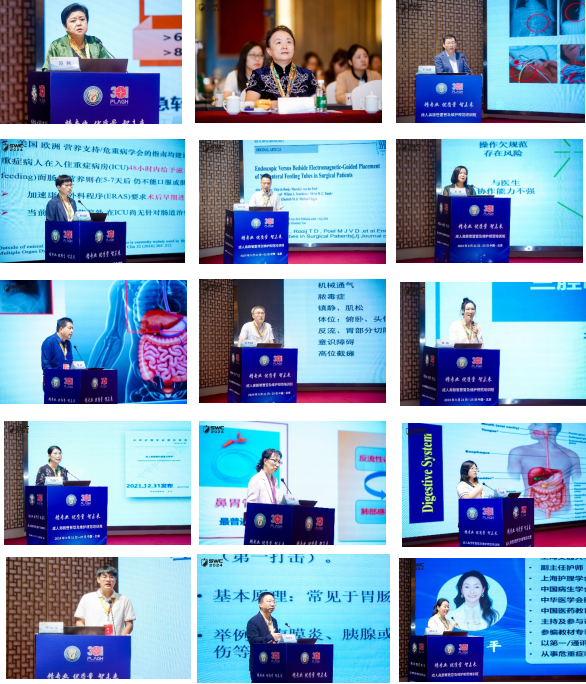
In line with the purpose of doing practical work and seeking practical results, this training course has also made innovations and breakthroughs in the operation training methods. Senior catheter experts have been invited to teach spiral naso-intestinal tube, three-cavity feeding tube, liquid sac jejunal catheter and magnetic navigation catheter using the most advanced intelligent model in China. In addition, in order to allow students to deeply understand the operation skills in a real clinical environment, The training course also recruited volunteers for real practice, and invited volunteers to share their feelings after the operation, which realized the teaching mode combining theory and practice to the maximum extent for the students, greatly improved the level of the students' operational skills, and laid a solid foundation for them to better serve the patients in the future. The students have benefited a lot, and the training has been well received.
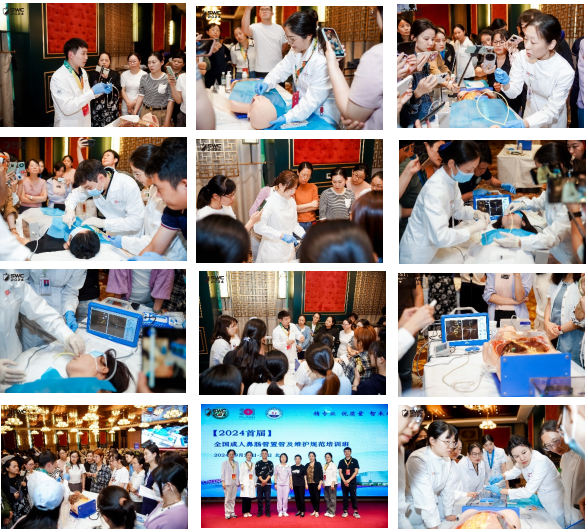
The successful holding of this training course is not only an important milestone in the training and standardization in the field of adult naso-intestinal tube placement and maintenance in China, but also makes an important contribution to improving the quality of medical care services in China and ensuring the safety of nutritional support treatment for elderly patients. In the future, we will work hand in hand to contribute to the standardization and development of this field, and make efforts to improve the quality of life of the elderly and build a healthy China.
Prev
In 2025, the first "dual-teacher Class" for medical and elderly care integration and palliative care was launched - systematically cultivating talents in elderly health services to empower the high-quality development of the elderly health cause
Next
Registration Notice for the First National Training Course on Nasointestinal Catheterization and Maintenance Standards for Adults

